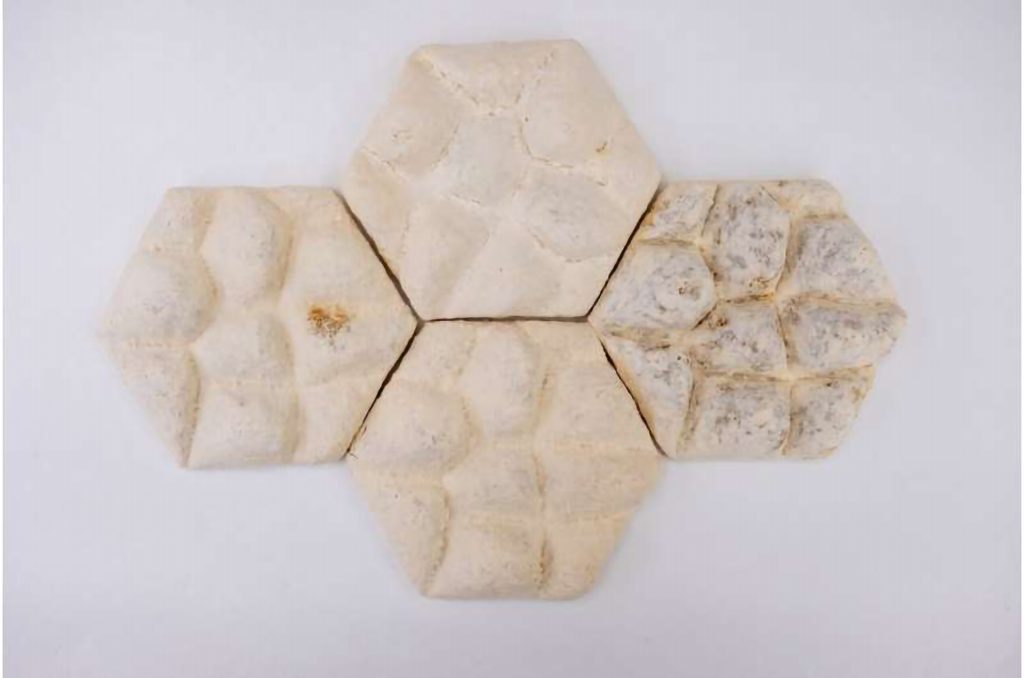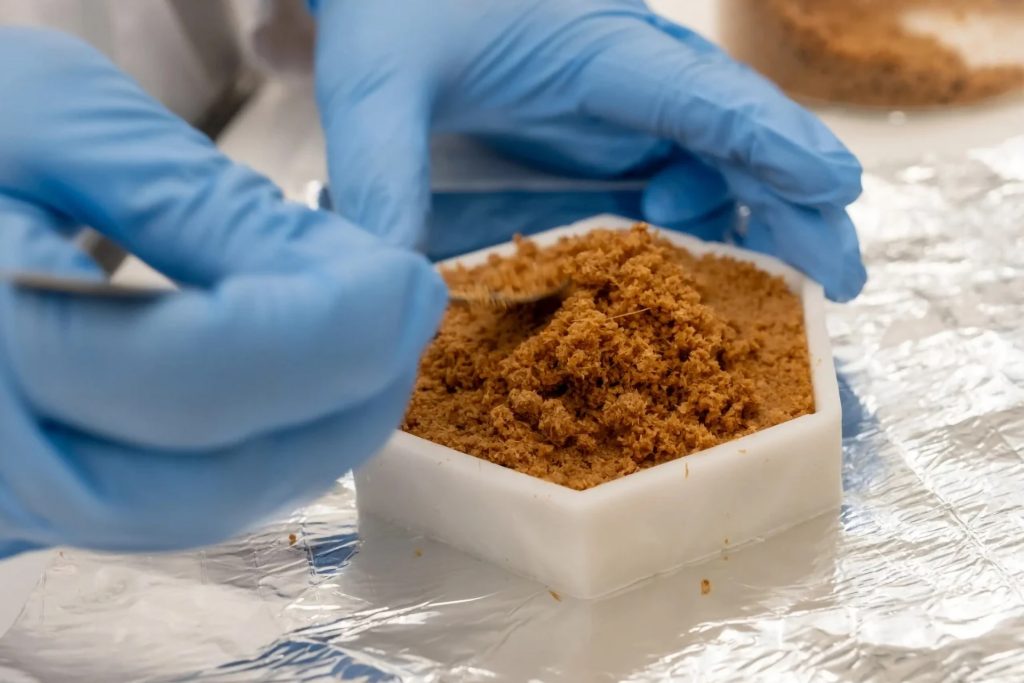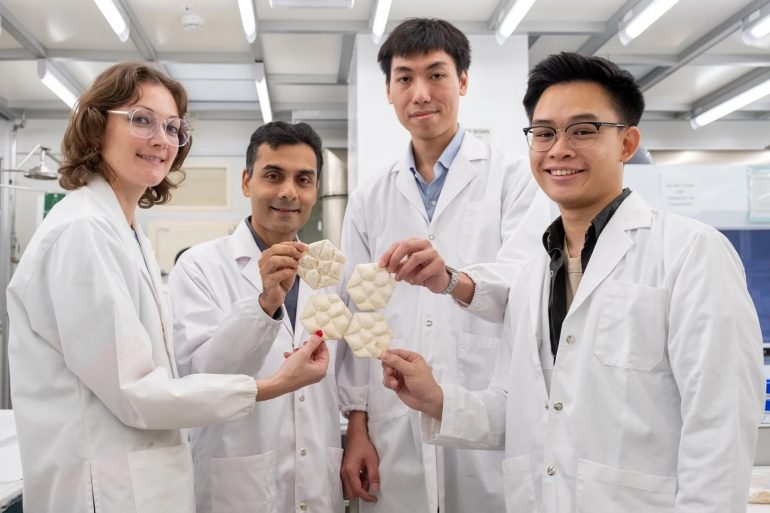If you’ve ever stood next to an air-conditioning unit on a sweltering afternoon, you’ll know two things for sure: one, Singapore is hot, and two, cooling down takes a lot of energy.
But what if we could cool our homes and offices the same way elephants cool themselves? That’s exactly what a group of scientists at Nanyang Technological University (NTU Singapore) and local biomimicry design firm bioSEA are trying to do. And their solution? Not steel, not glass, but fungi tiles.
These aren’t your garden-variety mushrooms sautéed with butter and garlic. These are mycelium-bound composites, a tongue-twister of a term for a special kind of fungi network grown on organic waste like bamboo shavings and oats. Think of them as nature’s insulation foam – biodegradable, energy-efficient, and surprisingly chic when pressed into hexagonal tiles that look like… elephant skin.
Elephants, despite their size and lack of sweat glands, have developed a genius method to stay cool. Their wrinkled skin retains moisture and traps cool air, using evaporation and shade to regulate body heat. Inspired by that, the NTU researchers and bioSEA turned to algorithms and computational modelling to design tiles mimicking this wrinkly texture.

And it works. In lab tests, these elephant-esque fungi tiles cooled 25% faster than smooth-surfaced versions. Even more impressively, when “rain” was simulated, the cooling effect jumped by a staggering 70%. As it turns out, the tiles’ fungal skin is hydrophobic, repelling water just enough to allow droplets to linger and evaporate, creating a natural air-conditioning effect.
To create these tiles, scientists grew the fungus Pleurotus ostreatus over several weeks inside moulds lined with the elephant skin-inspired textures. Once the mycelium had formed a solid structure, the tiles were gently baked at 48°C to halt further growth, a low-energy process that makes these tiles as eco-friendly to produce as they are to use.
NTU’s Associate Professor Hortense Le Ferrand, who leads the study, calls this innovation “a promising proof of concept” for passive cooling in tropical environments like Singapore’s. With building emissions accounting for nearly 40% of global energy consumption, this fungi-forward solution could one day line the walls of homes and offices in search of greener cooling methods.
“The thermal conductivity of these mycelium composites is comparable to synthetic materials,” said Prof Le Ferrand, who holds appointments at both the Schools of Mechanical and Aerospace Engineering and Materials Science and Engineering. “But unlike synthetic foam, it decomposes. It’s insulation you can grow and grow again.”

Of course, growing your wall tiles like crops has its challenges. It takes about three to four weeks for the mycelium to mature, and the production process isn’t yet ready to scale up to skyscraper proportions. Still, that hasn’t deterred the researchers, who are now working with local startup Mykílio to test larger prototypes on actual building façades.
There’s also some inertia in the industry. The usual resistance to anything that isn’t tried, tested, and tied down by decades of supply chain familiarity. But with the likes of bioSEA helping to bridge the gap between biology and building, that might be changing.
Dr Anuj Jain, Founding Director of bioSEA, believes nature already has the answers. “Elephants thrive in the heat not by fighting it, but by working with it,” he explained. “That’s the essence of biomimicry. We wanted to see if we could apply the same passive cooling logic to our built environment.”
And it seems they’ve done just that. These fungi tiles are smart, silent, and beautifully strange. They’re also, quite possibly, the only architectural innovation that could make you feel closer to nature just by standing next to a wall.
Check out more news articles on Futr here!






